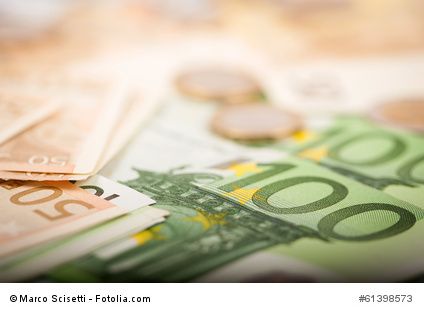The stock phobia of the Germans
The former high and soon after crash of the T-Share has left deep marks in the memory of the Germans. The “New Market” made many investors and even more the dazzling company owners rich in a short time at the beginning of the new millennium. Mobilcom, EM.TV, T-Online, Comroad and Gigabell – all these are names of former stars in the sky of the stock exchange, which within a short time again burned up.
The New Market
Between 1997 and 2003, when the “Neuer Markt” was abolished again as an independent stock exchange segment, there was a gigantic capital destruction, which was unimaginable in this extent in the Federal Republic of Germany until then. The driving force behind this was, as so often in mankind: Naked greed.
Particularly starting from the year 2000 discussions belonged over the stock exchange and new share investments to each private birthday celebration and each hairdresser attendance. Hardly surprising, IPOs during this period were practically synonymous with printing money for free. Every new start of a share on the stock exchange brought massive oversubscriptions and price gains on the day of issue. The lucky investors who were given new shares in an IPO only needed to cash in. There was a gold rush mood, the stock mania had broken out.
It was clear that this could not go on forever. When everyone is bullish, you should sell immediately, is an old stock market adage. But, as is well known, the last to bite is the dog, and so even loans were taken out to participate in an IPO or to buy new shares. The crash came all the more violently and the effects are still being felt today.
Germans avoid the stock market
After many investors are the fingers burned, the reaction was again extremely. Germans largely withdrew from the stock markets. The majority of shares in German companies are now in the hands of foreign pension funds, especially American and British ones, which are earning handsome returns on their investments.
German investors come away empty-handed. They prefer to put their money into unattractive investments, such as fixed-term deposits, overnight money or bond funds. This is much safer in their eyes. However, the only certainty is the daily, slice-by-slice destruction of money. As long as the ECB keeps interest rates at the current historically low level, no profits are possible. At best, a safeguard for the capital, but only if things go particularly well.
Share savings plan
If, for example, investors had paid 50 euros into a share savings plan every month from 1992 to 2014, they would have enjoyed a gross return (excluding taxes and fees) of just under 12 percent per year. And this despite the turbulence on the Neuer Markt and the roller coaster of the T-Share. The 13 percent paid in over the years.800 Euro could have been increased by price gains and dividends to a handsome sum of about 36 Euro.000 euros developed. That’s a real return on investment and a nice cushion for retirement.
The Dax could belong to the Germans. If you were to calculate that all employees in Germany had taken out such a share savings plan and saved regularly, they would now have a combined share portfolio of over 1.2 trillion euros. This corresponds pretty much to the value of the stock index MSCI Germany. This contains the 30 companies in the Dax and another 24 large stock companies.
Theoretically, the Dax could thus belong completely to the German small savers. This would be a real corporate participation of employees, as the unions have long demanded him.
Buy stocks
The German investors should put thus again much more money into shares. Of course, not in unsafe stock market rockets, as in the New Market. A low-cost index fund or share savings plan are, however, very good investment opportunities that no one should miss out on.
